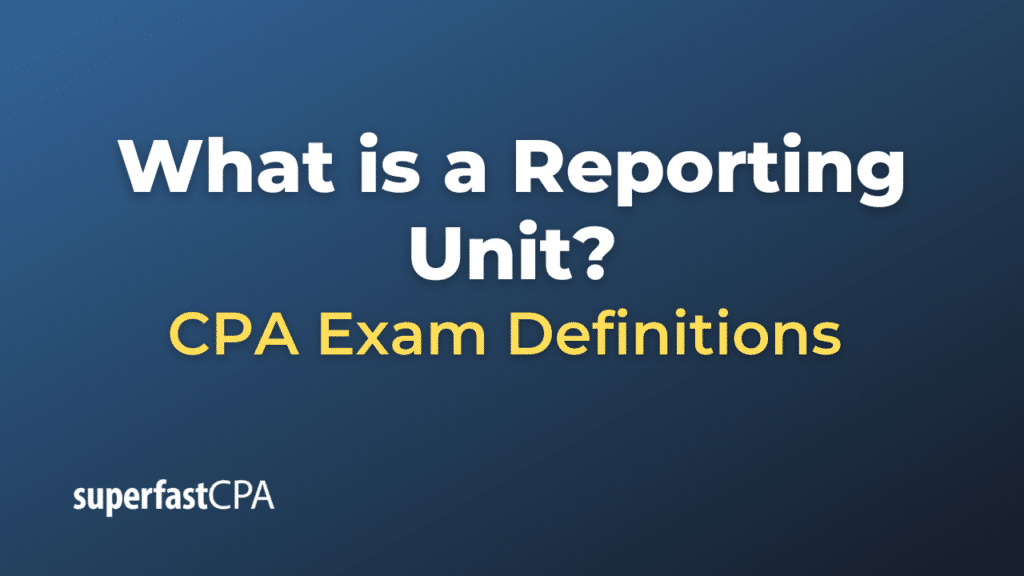Reporting Unit
A “reporting unit” is a component of an operating segment of a company for which discrete financial information is available and regularly reviewed by the operating segment’s chief decision-maker to allocate resources and assess performance. In the context of U.S. Generally Accepted Accounting Principles (GAAP), the concept of a reporting unit is particularly relevant for goodwill impairment testing.
When a company acquires another entity, it often pays a price that exceeds the fair value of the tangible and identifiable intangible assets of the acquired business. This excess is recognized as “goodwill” on the balance sheet. Under GAAP, companies are required to test goodwill for impairment at least annually or more frequently if events or changes in circumstances suggest that it might be impaired.
To conduct this test, companies must identify their reporting units and determine the carrying amount of each reporting unit, including the allocated goodwill. They then compare the carrying amount to the fair value of the reporting unit. If the carrying amount of a reporting unit exceeds its fair value, then the company would need to measure and recognize any goodwill impairment loss for that unit.
In essence, a reporting unit is a level of an organization at which goodwill is monitored for internal management purposes and tested for impairment. The size and nature of a reporting unit can vary significantly based on the company’s industry, organizational structure, and the way it manages and reviews its operations.
Example of a Reporting Unit
TechGlobal Corporation is a multinational tech company that has three main operating segments: Hardware, Software, and Cloud Services. Each of these operating segments is further divided into multiple reporting units based on geographical regions.
- Hardware:
- North America Hardware
- Europe Hardware
- Asia-Pacific Hardware
- Software:
- North America Software
- Europe Software
- Asia-Pacific Software
- Cloud Services:
- North America Cloud
- Europe Cloud
- Asia-Pacific Cloud
In 2020, TechGlobal acquired a European cloud services company, EuroCloud Inc., to expand its presence in the European market. The acquisition price exceeded the fair value of EuroCloud’s identifiable assets, resulting in goodwill being recorded on TechGlobal’s balance sheet.
By 2023, the European cloud market became highly competitive, and TechGlobal’s expected returns from the acquisition of EuroCloud began to appear uncertain.
Given the market changes, TechGlobal decides to perform a goodwill impairment test for its European Cloud reporting unit in 2023, instead of waiting for its regular annual test.
- TechGlobal determines the carrying amount of the Europe Cloud reporting unit, including the allocated goodwill from the EuroCloud acquisition.
- TechGlobal then estimates the fair value of the Europe Cloud reporting unit using appropriate valuation techniques (like discounted cash flow analysis).
- If the carrying amount of the Europe Cloud reporting unit exceeds its fair value, it indicates the potential for goodwill impairment.
- TechGlobal would then calculate the actual impairment loss, which would be the amount by which the carrying value of goodwill exceeds its implied fair value.
In this example, the concept of a “reporting unit” (Europe Cloud, in this case) is crucial for TechGlobal to identify where potential impairment risks lie and to comply with GAAP requirements for testing and, if necessary, recognizing goodwill impairment. The granularity of reporting units allows for a more precise and tailored assessment of goodwill’s value and the potential impairment in different parts of the business.













